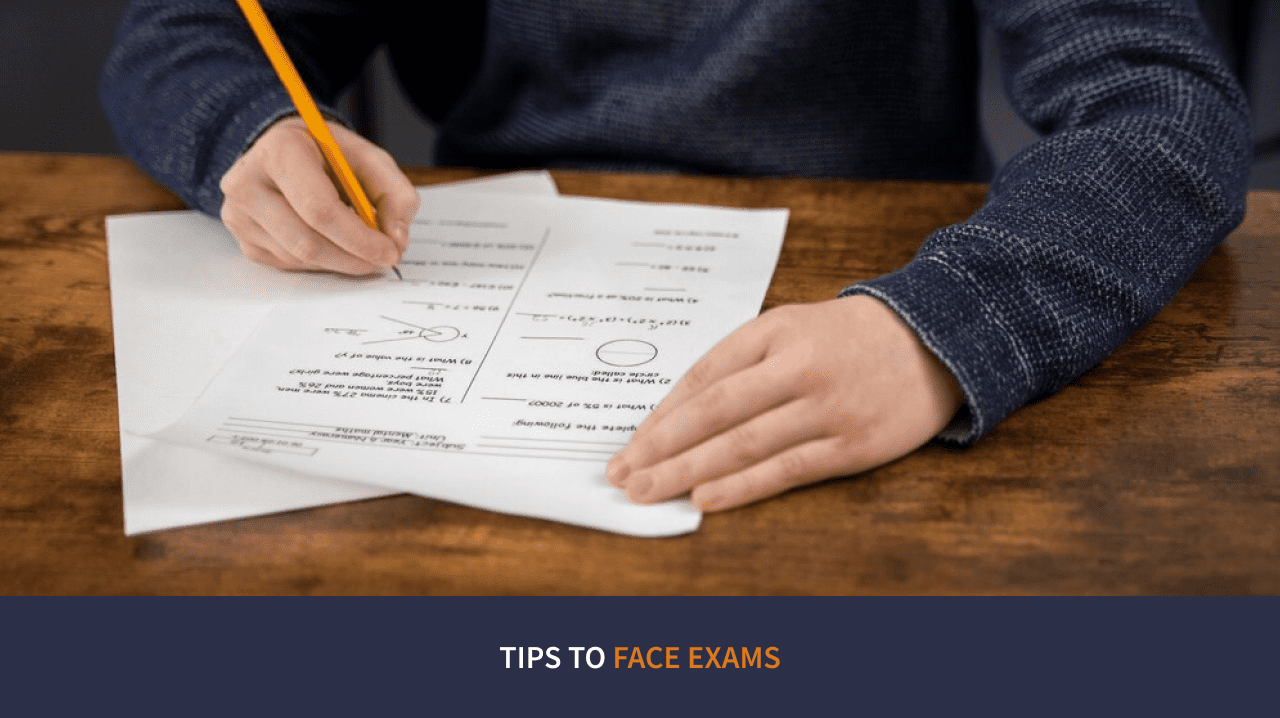Tips to Face Exams

The famous quote by Benjamin Franklin –“By failing to prepare, you are preparing to fail,” aptly describes the importance of exam preparation for students. Exams are a great opportunity for any student to showcase the dedication and the level of preparation he or she has done. Although getting good marks is not a one-day thing, from making a study timetable to managing time to multiple rounds of revisions are a few things that are behind the good academic scores of any student.
We, being one of the leading International Schools in India, share a few tips for students to face exams and score well:
- Get a hold of the syllabus: Understanding the syllabus is the primary thing to start with the preparation for any exam. Students often commit the mistake of directly starting the study, and this leads to confusion. Going through the syllabus provides clarity about the subjects and the number of topics to get covered.
- Make a timetable: Facing exams requires confidence, and that does not build in a night. However, creating a timetable and following it is the first step to facing exams confidently. To make an effective timetable, below are a few things that students should consider:
1. Be realistic: Sometimes the timetable is overburdened by too many subjects a day. One of the best ways is to keep only two subjects a day. Before going to bed an hour of revision will further help in keeping topics memorized.
2. Include small breaks: Small breaks should be included in between the log study hours. Breaks help in keeping the mind refreshed and healthy. Students can follow techniques like Pomodoro, to enhance grasping efficiency.
Note: If the student wants to take a little longer break then choosing an outdoor activity would be a great option, else taking a little nap would also be beneficial in bringing the energy back.
- Taking proper sleep: Taking a good 8-hour sleep helps students focus better and face exams with more attentiveness. As per a study, students who get proper sound sleep perform better than the students with less sleep. Here are a few things that a student can do to have a sound sleep:
1. It is advised to follow the same time to go to bed every day.
2. Avoid using devices like mobile phones, and tablets before going to bed. Ideally, they should be kept aside before an hour of sleeping. The blue light from the devices affects the sleep cycle.
Note: The importance and the benefits of sound sleep should be taught to students.
- Starting early revision is the key: Revision is the master key to score well in the exams. Multiple revision helps students memorize things better and also helps in understanding complex topics. Below are a few tips for quick and effective revision sessions:
1. Prefer to make notes in pointer form. They are quick to revise.
2. Always keep your notes handy, easy to carry and revise.
3. Use sticky notes to write down important topics and paste them in front of your study table, so that nothing is missed during the final revision sessions.
4. If a student does not prefer to make notes, then using a highlighter could be great as they can study only the highlighted portion multiple times.
Note: It is advisable to keep at least three complete revision sessions before the final exam.
- Focus on practicing the previous year’s question (PYQ) papers: One of the best tips to face exams is to practice as many previous year’s question papers as possible. They have multiple benefits:
1. A student develops a better understanding of the question pattern asked in the previous years.
2. It provides an idea of the chapters that carry more weight than the others.
3. It is one of the best ways to do complete revision and further offers clarity about the weak areas that require more attention.
- Clearing other’s academic doubts: It is quite an unconventional tip to face exams. Clearing others’ doubts helps student perceive things differently and allows their brain to think as a part of the solution. This also encourages the student to think out of the box and come up with different solutions to their fellow’s doubts. Simultaneously, during this exercise, he or she develops confidence and also does an indirect revision of the syllabus.
- Avoid social media during study hours: Social media is one of the biggest distractions for students these days. Scrolling smartphones and consuming social media or playing video games increases their dopamine level. That gives them a sensation of happiness and encourages them to keep using it. So, it is advised to not use social media during the small break in between study sessions as it will only consume more energy rather than making their mind refreshed. If you are a student and using the Pomodoro techniques with a 5 or 10-minute break then closing the eyes and keeping the body relaxed is the best option to regain the attention span and energy to start another study session.
Quick tips for a day before the exam
- It is advised to keep themselves calm and composed.
- If a student is experiencing a bit of anxiety, then deep breathing exercises might be helpful.
- Only keep the important things to revise for a day before the exam, otherwise it might lead to unwanted stress.
- Taking a good sound sleep will keep the mind refreshed, which further helps in performing better in the exam.
If you are tired of searching the internet with terms like best ICSE schools in Pune, and the best IB board schools in India, consider MIT Vishwashanti Gurukul. We, being one of the best IB board schools in India, understand how difficult it sometimes becomes for a student to face the exams. That is why we believe in offering the best quality education through the Guru-Sishya Parampara, which promotes the holistic development of students. We have also included special yoga and meditation sessions for students for their psychological health. Our well-experienced and rigorously trained teachers also conduct various revision sessions so that students face exams confidently. In our 125-acre campus, we offer top-notch facilities to our students and our proven results have made us ranked among the top 10 International Schools in India for the past 10 years.

